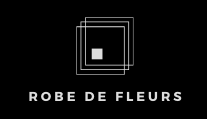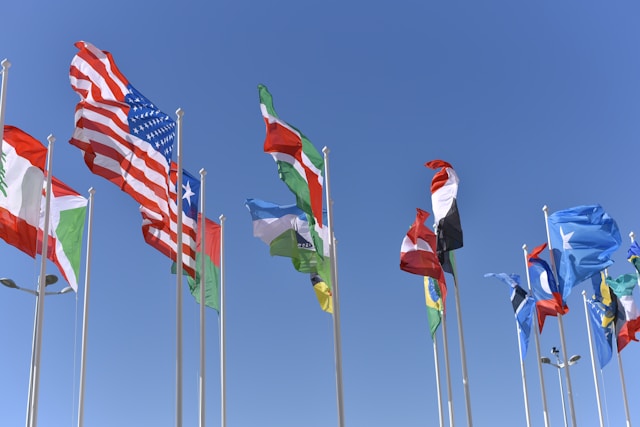Sancy Suraj: A Memory Expert Who Can Identify Flags Faster Than You Can Blink
Sancy Suraj is a Singaporean memory expert who has been making waves in the world of memory feats. With a total of six memory records under his belt, he is quickly becoming a household name in Singapore and beyond. His latest accomplishment was breaking the Singapore record for the Fastest Time To Identify All National Flags, where he had to type the country names for 197 flags. Sancy has also set records for reciting pi digits and Euler’s number. In this article, we’ll dive deeper into Sancy’s world of memory feats and learn more about what sets him apart from other memory athletes.

How did you get started in the world of memory feats, and when did you first realize you had a talent for memorization?
Thank you for the question. My journey in the world of memory feats started when I was in primary school. I have always been interested in the workings of the human brain and how we process information. When I was in secondary school, I came across a book about memory techniques and was fascinated by the idea that one could use these techniques to improve their memory. I began experimenting with various memory techniques and was surprised at how quickly I was able to memorize things that I previously thought were impossible to remember.
As I continued to practice these memory techniques, I started participating in memory competitions and quickly realized that I had a talent for memorization. I began to challenge myself to memorize more and more difficult things, such as long strings of numbers and complicated formulas. With each success, I became more confident in my abilities and more determined to push myself even further.
Over time, I developed a deep passion for memory and the incredible potential it has to help us learn and grow. I began to see memory not just as a tool for memorization, but as a key to unlocking the full potential of the human mind. Today, my love for memory and my desire to push the boundaries of what is possible continue to drive me forward in my quest to become the best memory athlete I can be.
Your record for identifying national flags is incredibly impressive – can you talk us through your strategy for memorizing so many flags and countries?
Certainly! When it comes to memorizing flags and countries, I employ a combination of memory techniques and sheer practice. To begin with, I use a technique called the Memory Palace or Method of Loci, which involves associating each flag with a specific location in a familiar place, such as a childhood home or a favorite park. This technique allows me to create a mental map of the flags and their associated countries, making it easier for me to remember them.
Once I have established the Memory Palace, I then practice repeatedly recalling the flags and their associated countries until I can do so quickly and accurately. This involves testing myself repeatedly, first with a small number of flags and then gradually increasing the number until I am able to recall all 197 flags.
Another important aspect of my strategy is visualization. I find it helpful to create vivid mental images of each flag and its associated country, which makes it easier for me to remember them. For example, I might imagine the flag of Sweden as a blue and yellow crown sitting on a bed of snow, to help me remember that it represents a cold, northern country.
Finally, I also make use of mnemonic devices such as acronyms or rhymes to help me remember particularly difficult flags or countries. For example, I might remember that Palau’s flag features a yellow circle by associating it with a sunny yellow beach ball.
In summary, my strategy for memorizing national flags involves using a combination of memory techniques, visualization, and practice. By creating a mental map of the flags and their associated countries, visualizing vivid mental images, and using mnemonic devices, I am able to quickly and accurately recall a large number of flags and their corresponding countries.
You’ve broken multiple memory records in Singapore – what do you think sets you apart from other memory athletes?
Thank you for the question. I believe that what sets me apart from other memory athletes is a combination of factors. Firstly, I have a deep passion and love for memory and have dedicated a significant portion of my life to studying and practicing memory techniques. This passion drives me to continuously improve my abilities and push the boundaries of what is possible.
Secondly, I have developed my own unique approach to memory that combines both traditional memory techniques and my own creative innovations. I constantly experiment with different techniques and strategies to find the ones that work best for me, and I am not afraid to try new things or take risks.
Thirdly, I have a strong mindset and mental resilience. In memory competitions, it is not just about memorizing as much as possible, but also about performing under pressure and dealing with unexpected challenges. I have learned to remain calm and focused in high-pressure situations, which allows me to perform at my best even under stressful circumstances.
Finally, I believe that my ability to think creatively and outside the box is what truly sets me apart. While many memory athletes rely on traditional memory techniques, I have developed my own innovative approaches that allow me to memorize even the most complex information quickly and accurately.
In summary, what sets me apart from other memory athletes is my deep passion and dedication to memory, my unique approach to memory techniques, my mental resilience, and my ability to think creatively and outside the box.
“Passion, innovation, resilience, and creativity – these are the building blocks that make up the foundation of my memory journey, and what sets me apart as a memory athlete.”
Many people struggle with memorization and retention – what advice would you give to someone who wants to improve their memory skills?
Certainly! As someone who has spent a lot of time honing my memory skills, I believe there are a few key strategies that anyone can use to improve their memory:
- Practice regularly: Just like any skill, memory requires practice to improve. Make a conscious effort to memorize new information on a regular basis, whether it’s by memorizing a new phone number, a recipe, or a list of vocabulary words. The more you practice, the better you’ll get.
- Use memory techniques: There are many different memory techniques that can help you remember information more effectively, such as the Memory Palace, the Major System, and the Method of Loci. Experiment with different techniques and find the ones that work best for you.
- Pay attention: One of the most common reasons people struggle with memorization is because they don’t pay enough attention to the information they’re trying to remember. Make a conscious effort to focus your attention on the information you want to remember, and try to eliminate distractions as much as possible.
- Make it meaningful: Information is much easier to remember when it is meaningful and relevant to you. Try to find ways to connect the information you want to remember to your own experiences or interests.
- Repeat and review: Repeating information and reviewing it regularly is an effective way to consolidate it in your memory. Try to review information shortly after you’ve learned it, and then again at regular intervals to help it stick in your memory.
In summary, to improve your memory skills, practice regularly, use memory techniques, pay attention, make it meaningful, and repeat and review information. By following these strategies, you can improve your ability to remember and retain information, and achieve greater success in both your personal and professional life.
Do you have any pre-competition rituals or routines that help you get into the right mindset for a memory feat?
Yes, I do have some pre-competition rituals and routines that help me get into the right mindset for a memory feat. Here are a few of the things that I typically do before a competition:
- Visualize success: I spend some time visualizing myself successfully completing the memory task that I am about to undertake. I visualize myself remembering all the information accurately and quickly, and I focus on feeling confident and in control.
- Warm up my memory: Just like you might warm up your body before a workout, I warm up my memory by reviewing some basic information or practicing a few memory exercises. This helps to get my brain in the right mode for memorization.
- Get into a focused state: I try to eliminate any distractions and get into a focused state of mind. This might involve listening to some calming music, doing some deep breathing exercises, or simply taking some time to clear my mind.
- Establish a routine: I have a specific routine that I follow before every memory competition, which helps to create a sense of familiarity and comfort. This might involve eating a specific meal, wearing a specific outfit, or doing certain exercises.
- Stay positive: Finally, I try to maintain a positive attitude and avoid negative self-talk or doubt. I remind myself of my past successes and focus on the progress I have made, rather than worrying about the outcome of the current competition.
In summary, my pre-competition rituals and routines involve visualizing success, warming up my memory, getting into a focused state, establishing a routine, and staying positive. By following these practices, I am able to get into the right mindset for a memory feat and perform at my best.
“Success in memory feats isn’t just about memorizing information, it’s about preparing your mind and body to perform at its best. My pre-competition rituals and routines help me get into the right mindset for success.”
Sancy’s interest in memory feats started at a young age. He discovered his natural talent for memorization while in school, where he excelled in subjects like history and geography that required a lot of memorization. Over time, he developed his own memory techniques and began practicing in earnest. Sancy’s strategy for memorizing the national flags involves breaking them down into smaller components, such as colors and shapes. He also creates mental images to help him remember the countries associated with each flag.
When asked about what sets him apart from other memory athletes, Sancy attributes his success to his passion for the subject and his dedication to practice. He spends hours each day honing his memory skills and experimenting with new techniques. He also believes that his ability to stay calm and focused under pressure has helped him perform well in competitions.
For those looking to improve their own memory skills, Sancy recommends a few key tips. These include practicing regularly, breaking information down into smaller pieces, and creating mental images or stories to help remember it. He also emphasizes the importance of staying relaxed and focused, and avoiding distractions.

In addition to memory feats, are there any other areas where you’d like to challenge yourself or set records in the future?
Yes, while memory feats are my main focus, there are certainly other areas where I would like to challenge myself and set records in the future. One area that I am particularly interested in is mental calculation. This involves performing complex calculations in your head, without the use of a calculator or other external tools. I find mental calculation to be a fascinating challenge, as it requires a high degree of focus, attention to detail, and mathematical understanding.
Another area that I am interested in exploring is speed reading. I believe that with practice and training, it is possible to dramatically increase the speed at which you can read and comprehend written material. This would be a valuable skill for many areas of life, and I would be interested in exploring how far I can push my reading speed.
Finally, I am also interested in exploring the world of memory techniques beyond the specific feats that I have already accomplished. There are many different memory techniques out there, and I believe that there is always more to learn and discover. I am particularly interested in exploring how memory techniques can be used in more practical applications, such as studying for exams or memorizing important information for work or personal projects.
In summary, while memory feats are my primary focus, I am also interested in exploring other areas where I can challenge myself and set records in the future. These include mental calculation, speed reading, and exploring the world of memory techniques more broadly.
“Challenging myself in new areas not only expands my skillset but also allows me to continuously push the limits of what’s possible and discover new ways to enhance my memory and cognitive abilities.”
Sancy Suraj’s accomplishments in the world of memory feats are truly impressive. His dedication to his craft and his passion for memorization have led him to set multiple records in Singapore and beyond. As he continues to explore new challenges, such as mental calculation and speed reading, it will be exciting to see what he accomplishes next. For those looking to improve their own memory skills, Sancy’s advice is invaluable. With practice and dedication, anyone can improve their memory and achieve impressive feats of their own.





